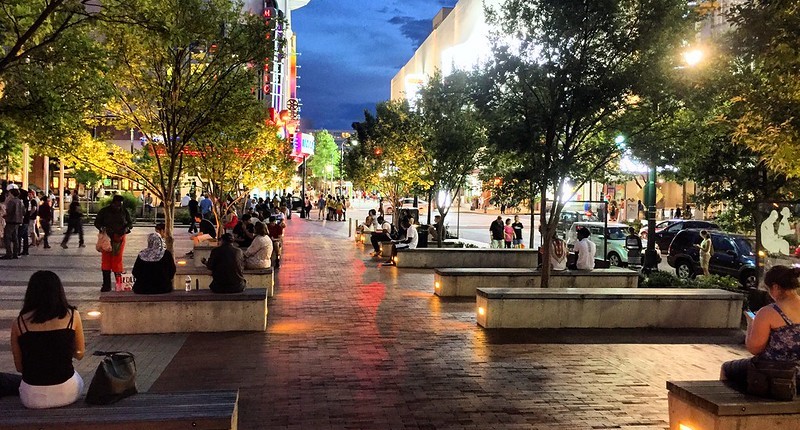
Montgomery is home to a strong school system, well-paying jobs and technology clusters, remarkable diversity, growing urban centers, an expansive park system, and our nationally-heralded Agricultural Reserve. Montgomery County has long been an innovator when it comes to forward-thinking, progressive policy solutions. Among those innovative policy solutions are its inclusionary zoning program, parks and conservation, and transit initiatives.
With the county projected to grow by 230,000 residents over the next 25 years, progressive and innovative smart growth policies are a must-have for the county to handle that growth, generate the tax revenues necessary to maintain high-quality services, and thrive as a sustainable, equitable, and economically-competitive community.
Our Work in Montgomery County, MD
Montgomery for All
Montgomery for All is a grassroots, community-led group advocating for sustainable and inclusive land use, housing, and transit policies in Montgomery County, Maryland. Our mission is to create a more affordable, equitable, environmentally sustainable, prosperous county through better land use, housing, and transit decisions. Montgomery for All is organized and supported by the Coalition for Smarter Growth. Learn more >>>
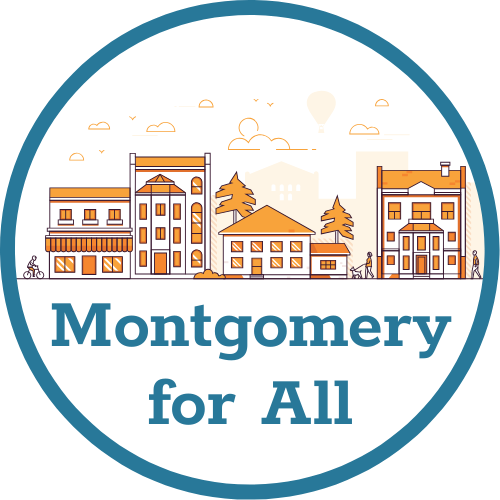
Better Buses
In December 2020, we launched the Montgomery Better Buses campaign with over 20 of our allies. Read about our platform. We’re pushing Montgomery County to conduct a comprehensive redesign and reimagining of the Ride On and Metrobus systems, with an improvement and investment plan for the next 15 years. Buses are the backbone of a sustainable, equitable transportation system and a thriving local economy. We seek to make buses: 1) the mode of choice, 2) fare-free, and 3) carbon neutral. Learn more >>>
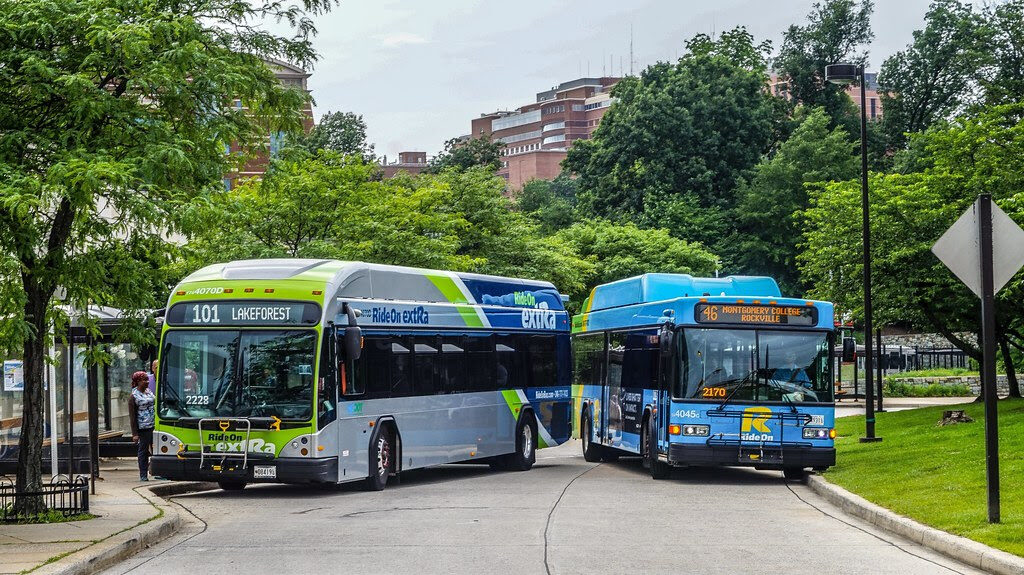
Chevy Chase Library
Chevy Chase Library needs major repairs, and the county can either renovate the library as-is, or redevelop the library with mixed-income housing. County Executive Marc Elrich has directed the county to renovate the existing library, leaving behind an important opportunity for affordable housing a short walk from a future Purple Line light rail station in a high-demand neighborhood. Read our fact sheet and learn more >>>
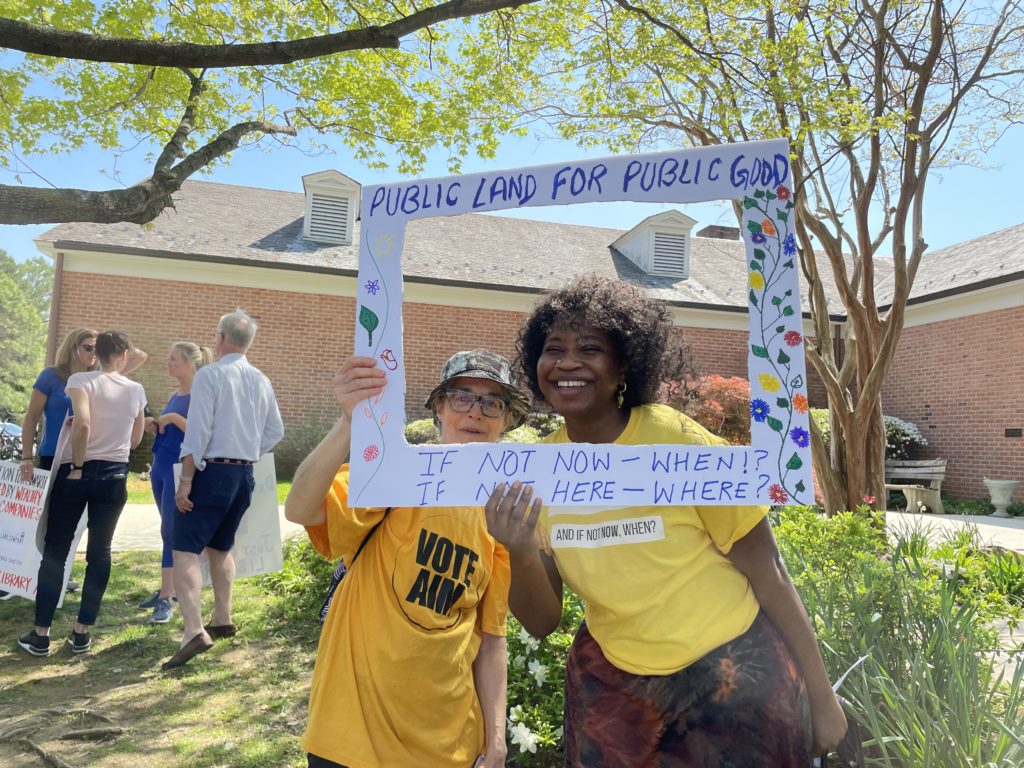
Missing Middle Housing
Allowing for more diverse housing types (duplexes, triplexes, and other small multifamily buildings) is an important strategy to make neighborhoods more economically diverse, improve walkability, and offer a range of housing opportunities for households with different needs. Previously outlawed, the county is now considering ways to make it easier to build different housing types, especially near transit. Learn more >>>
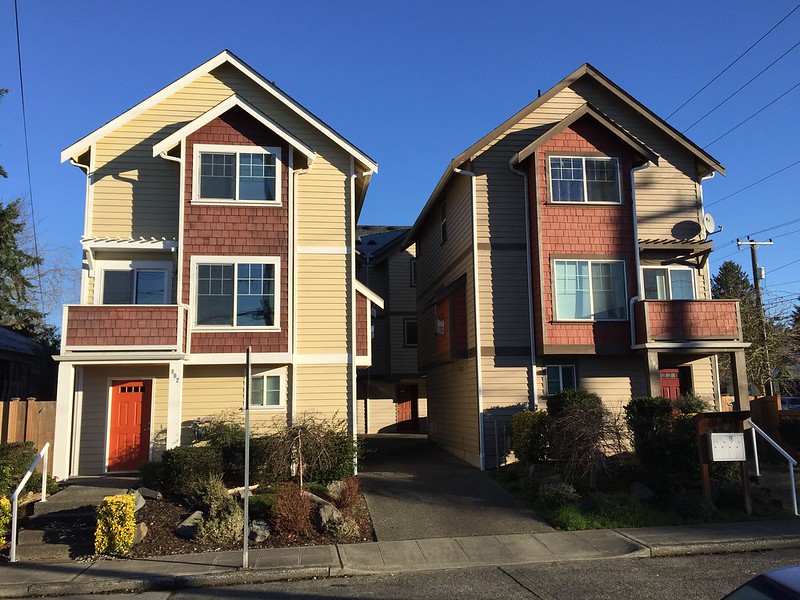
Silver Spring Downtown & Adjacent Communities Plan
The SSDAC plan is the new master plan for the Silver Spring central business district and several nearby neighborhoods. The plan can help shape downtown Silver Spring’s future to be one that improves pedestrian and bicycle safety; continues to be racially, ethnically, and economically diverse; is a vibrant commercial center; and more. Learn more >>>
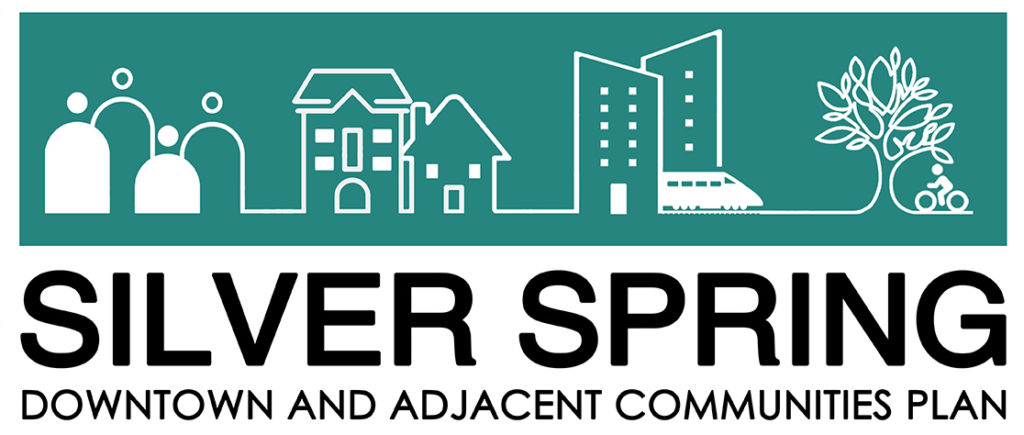
Thrive Montgomery 2050
Montgomery County is updating its General Plan, “Thrive Montgomery 2050.” Thrive will be the blueprint for the county’s growth over the next 30 to 50 years and help to drive the county’s policy agenda. We’re organizing a local grassroots group, Montgomery for All to advocate for a plan that paves the way for a more equitable, prosperous, and sustainable future. Learn more >>>
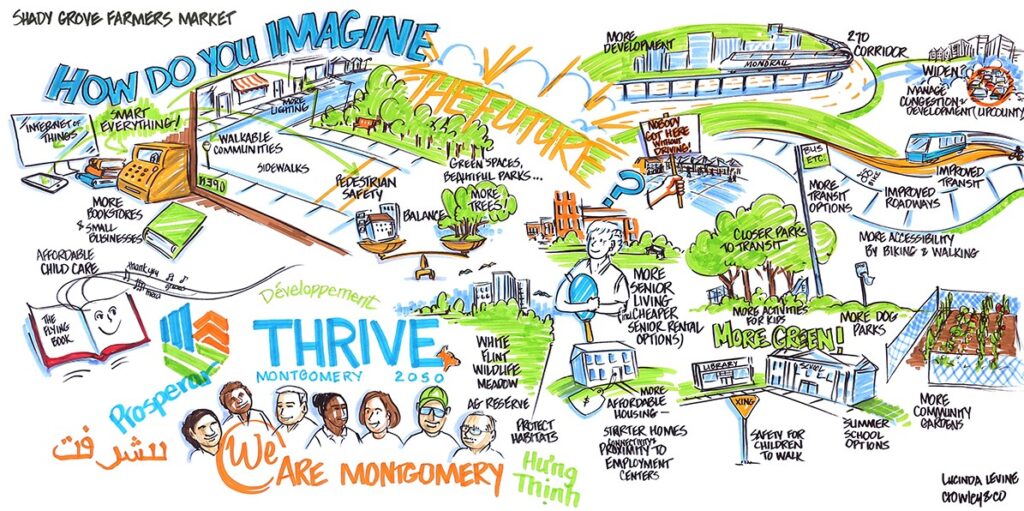
Past Campaigns
- Accessory Dwelling Units: We teamed up with Habitat for Humanity Metro Maryland to make it easier for homeowners to add an accessory dwelling unit (ADU) to their home. We’re continuing our advocacy and outreach by hosting homeowner ADU workshops and pushing for expanding financing tools, especially for low-income homeowners. Learn more >>>
- Bus Rapid Transit: In 2013, the Montgomery County Council unanimously approved an ambitious 81-mile bus rapid transit system (BRT). We are advocating for a dedicated lane in this first stage by asking the Montgomery County Council to divert $16 million of design funding for the other routes toward building dedicated lanes on US 29. Learn more >>>
- The Midcounty Highway Extended: The Midcounty Highway Extended, or M-83, is a proposed limited access highway that would connect Montgomery County’s Clarksburg to Gaithersburg, and was initially proposed in the 1960s. The 6-lane highway, which would run parallel to Route 355 to the east, would harm wetlands, fragile stream valleys, the agricultural reserve, and divide existing neighborhoods in Montgomery Village and Germantown. Learn more >>>
Latest Happenings
CSG in the News: Elrich vows to push back on approved More Housing N.O.W. legislation
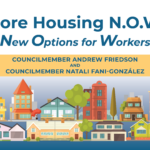
Written Recommendations: MoCo’s More Housing N.O.W. Package
CSG in the News: MoCo residents polarized over proposed workforce housing legislation
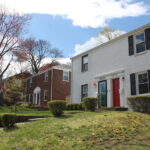
In-Person Testimony: MoCo More Housing N.O.W. Package

